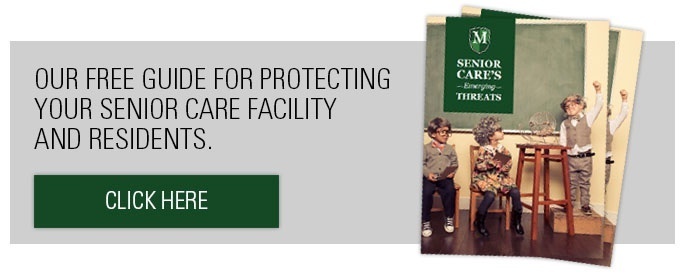Elderly care facilities exist to provide for the needs of seniors, including everything from a range of health services to social activities. When the staff at a nursing home or assisted living community is accused of elder abuse, it rocks the foundation of the institution. These allegations have massive consequences for the individuals involved and also for the reputation and financial stability of the facility as a whole.
It’s vital for any senior home to take extensive, proactive steps to head off the possibility of abusive behavior among staff. With responsible choices and close supervision, the administration can minimize the risks to both residents and the facility. These measures allow an elder care institution to focus on providing high-quality care.
1. Follow monitoring procedures
“Administration in a senior care facility must be vigilant.”
The administration in a senior care facility must be constantly vigilant for any signs that residents are being mistreated in any way. Abuse can take many forms, whether physical, emotional or financial, so strict monitoring is an essential part of the daily routine. Leadership should be attentive to any behavioral issues among staff or indications of mistreatment in the residents.
According to the U.S. Department of Health and Human Services Administration on Aging, clues to elder abuse include:
- Physical injuries, like bruises, abrasions, pressure marks or broken bones.
- The senior stops participating in social activities and seems unusually depressed.
- Poor hygiene, weight loss or bedsores.
- The resident faces sudden financial difficulties or is missing property.
- A staff member frequently argues with the senior
Following strict monitoring procedures is a wise course of action for everyone involved. Clear rules that are consistently enforced keep residents safe, prevent disciplinary issues with staff and protect administrators from liability.
2. Raise awareness
No one likes to discuss elder abuse, but staying quiet about the possibility makes it easier to sweep incidents under the rug. Build a culture of openness and accountability, talking openly about the risks. This approach will encourage staff and residents to watch out for unacceptable activity and report it. All employees should undergo regular and ongoing training about abuse and neglect so there is no misunderstanding about what is expected of them.
3. Maintain strong community
Isolation is both an indicator of abuse and a major reason why it often goes unreported. Maintaining strong bonds and plenty of opportunities for communication among residents and staff can ward off serious issues down the line. It’s especially important to check on the well-being of individuals who are living with dementia or who struggle to communicate.
Many facilities have an independent resident council to discuss shared concerns and advocate for changes in policy. This group can play an important role in catching problems among the staff and patients, bringing them to the attention of administrators. These volunteers may be particularly helpful in situations where a resident is unable or fearful to speak up.
Guarding the health and happiness of residents must be the first priority of any elder care facility. However, it’s also vital to protect the institution against the legal and financial dangers that come with an accusation of violence or neglect. That’s why a senior home needs an insurance policy that’s built around its unique needs.
4. Purchase a senior care insurance policy
McGowan Program Administrators offers a senior care insurance program geared to meet the challenges of skilled nursing, assisted living, dementia care and independent living communities, as well as home health care services. These facilities can all obtain coverage that’s customized for the risks that go along with their work. With primary medical and general liability limits of up to $4 million and a deep knowledge of senior care, McGowan uses the “Power of the Pen” to deliver precisely the right policy for your community.



